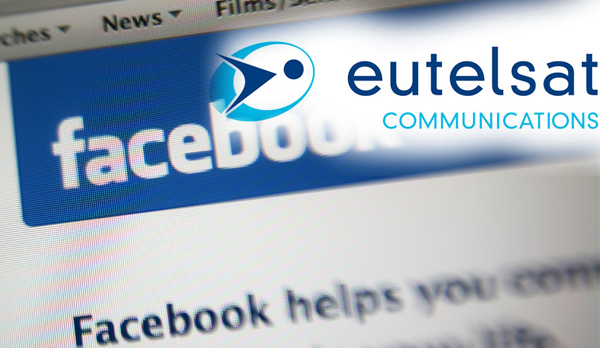Social media giant Facebook has entered into a partnership with European satellite operator Eutelsat Communications to get more Africans online using satellite broadband technology.
In a joint statement issued on Monday, the two companies noted that the aim was to meet the internet connectivity needs of the “many users deprived of the economic and social benefits of the internet.”
It will be recalled that Facebook CEO Mark Zuckerberg, had in a summit at the 70th United Nations General Assembly identified internet connectivity as a viable solution to the problem of extreme poverty in the world, while promising to assist the UN’s effort to achieve the Sustainable Development Goals (SDGs) that were adopted at the event.
Facebook and Eutelsat state they will enter into an agreement with satellite company Spacecom which will enable the two companies utilise the entire broadband payload on the future AMOS-6 satellite and will build a dedicated system comprising satellite capacity, gateways and terminals.
According to the statement, “Scheduled for start of service in the second half of 2016, the Ka-band payload on the AMOS-6 geostationary satellite is configured with high gain spot beams covering large parts of West, East and Southern Africa.
“The capacity is optimised for community and Direct-to-User Internet access using affordable, off-the-shelf customer equipment.”
The capacity is expected to be shared between Facebook and Eutelsat.
Futhermore, the statement read in part: “Using state of the art satellite technology, Eutelsat and Facebook will each deploy Internet services designed to relieve pent-up demand for connectivity from the many users in Africa beyond range of fixed and mobile terrestrial networks.
“Satellite networks are well suited to economically connecting people in low to medium density population areas and the high throughput satellite architecture of AMOS-6 is expected to contribute to additional gains in cost efficiency.”
The capacity will enable Eutelsat to step up its broadband activity in Sub-Saharan Africa that was initiated using Ku-band satellites to serve professional users.
For Facebook, this satellite system represents one of many technology investments to enable cost-effective broadband access to unconnected populations. Facebook plans to work with local partners across Africa to utilise satellite and terrestrial capacity to deliver services to rural areas.
Two years ago, Facebook announced Internet.org, an effort to accelerate the rate of connectivity by addressing the physical, economic and social barriers that are keeping people from getting online.
“Facebook’s mission is to connect the world and we believe that satellites will play an important role in addressing the significant barriers that exist in connecting the people of Africa,” said Chris Daniels, VP of Internet.org.
“We are looking forward to partnering with Eutelsat on this project and investigating new ways to use satellites to connect people in the most remote areas of the world more efficiently,” Daniels declared.
Commenting on the agreement, Michel de Rosen, Eutelsat Chairman and CEO, said: “We are excited by this opportunity to accelerate the deployment of our broadband strategy and to partner with Facebook on a new initiative to provide Internet access services in Africa.
“Eutelsat’s strong track record in operating High Throughput Satellite systems will ensure that we can deliver accessible and robust Internet solutions that get more users online and part of the Information Society.”




 Premier League
Premier League